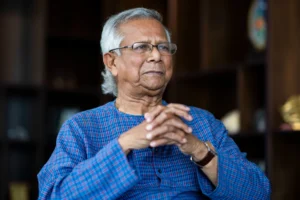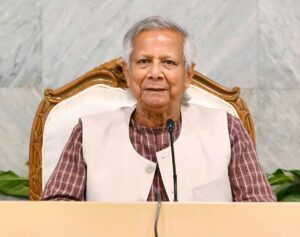 Muhammad Yunus, a colonist in microfinance and social entrepreneurship, has left an unforgettable mark on the globe through his innovative approach to easing poverty. Born on June 28, 1940, in Chittagong, Bangladesh, Yunus displayed an early interest in profitable proposition and social issues, ultimately earning a Ph.D. in economics from Vanderbilt University in 1971.
Muhammad Yunus, a colonist in microfinance and social entrepreneurship, has left an unforgettable mark on the globe through his innovative approach to easing poverty. Born on June 28, 1940, in Chittagong, Bangladesh, Yunus displayed an early interest in profitable proposition and social issues, ultimately earning a Ph.D. in economics from Vanderbilt University in 1971.
In the 1970s, faced with the plight of impoverished communities in pastoral Bangladesh, Yunus conducted trials advancing small quantities of plutocrat to the poor, which marked the commencement of what would latterly come the Grameen Bank. His focus was on empowering women, who frequently demanded access to traditional banking. With small loans that came without collateral, Yunus aimed to give the impoverished population with the means to start their own businesses and come financially independent.
The establishment of Grameen Bank in 1983 was a vital moment in the geography of finance, setting a precedent for microcredit as a tool for profitable development. Under Yunus’s leadership, the bank successfully handed loans to millions, transubstantiating the lives of innumerous individualities. By emphasizing particular responsibility and collaborative support, Grameen Bank not only stimulated original husbandry but also fostered a sense of solidarity among borrowers.
In recognition of his groundbreaking work, Dr. Yunus, along with Grameen Bank, was awarded the Nobel Peace Prize in 2006. This prestigious accolade stressed the essential connection between profitable development and peace, emphasizing Yunus’s belief that fiscal addition can contribute to conflict resolution and social stability encyclopedically.
Yunus’s benefactions extend far beyond the transactional nature of microcredit. He has come an influential advocate for social business, a model aiming to attack social issues through business principles. Through his jottings and transnational lectures, he has inspired a generation of entrepreneurs and associations to borrow social responsibility as a deliberate aspect of

their operations.
The global impact of Dr. Yunus’s work is monumental; his model has been replicated in colorful forms across numerous countries, furnishing millions with analogous openings for profitable commission. Institutions inspired by Grameen Bank have surfaced in regions gauging from Africa to Latin America, each conforming Yunus’s principles to their unique surrounds.
In conclusion, Dr. Muhammad Yunus stands as a lamp of stopgap in the fight against poverty. His pioneering spirit, coupled with his formal profitable sapience, has not only readdressed the parameters of fiscal availability but has also supported for a world where business serves the lesser good. As we continue to grapple with profitable inequalities worldwide, the assignments from Yunus’s trip remain ever applicable, encouraging us to conjure of, and strive for, a further indifferent future.
